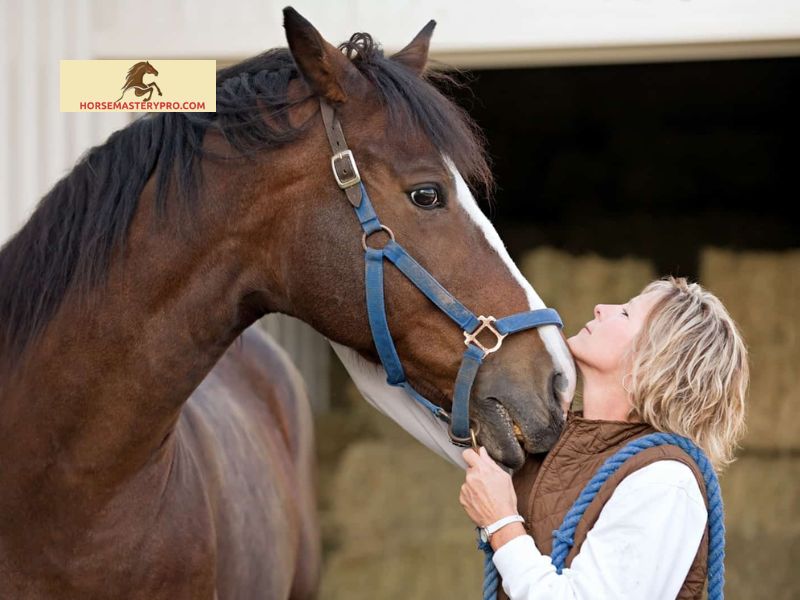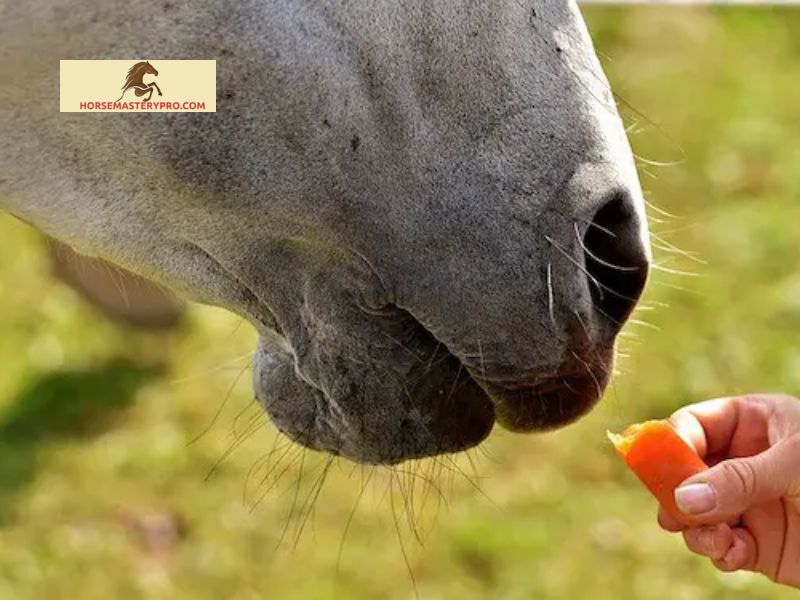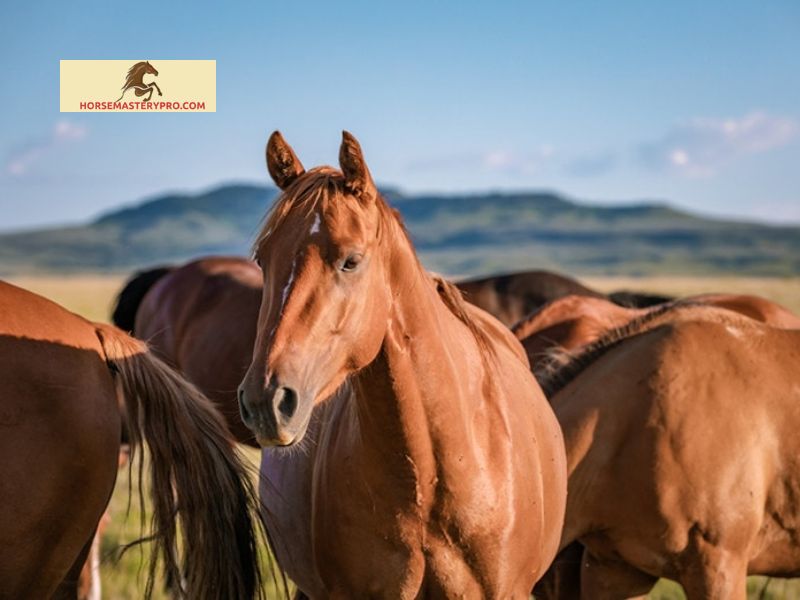Unlock the mystery of equine communication! Discover if horses know their names and unravel their non-verbal cues, vocalizations, and more. A fascinating read!
As we stand in awe of these majestic creatures, it’s natural for us to wonder: do horses know their names? The fascinating world of equine communication has captivated researchers and horse enthusiasts alike. In this article, we will explore the depths of horse intelligence and their remarkable ability to communicate with humans. So, saddle up and join me as we delve into this intriguing topic.
Horses possess an innate intelligence and an intricate communication system that goes beyond mere verbal language. Their ability to understand and respond to non-verbal cues and body language is truly remarkable. From subtle shifts in posture to the flick of an ear, horses are constantly sending and receiving messages to their herd members and humans alike. It is through these non-verbal cues that they establish trust, assert dominance, and express their emotions.
Vocalizations also play a significant role in equine communication. The whinny, neigh, and snort are just a few examples of the various sounds horses make to convey specific messages. These vocalizations can reflect excitement, fear, or even a simple greeting. While these sounds may not directly relate to their names, they serve as crucial elements in their overall communication repertoire.
But let’s dive deeper into the burning question: can horses really recognize their names? Stay tuned as we unveil the intriguing research surrounding name recognition in horses. So, grab a carrot, and let’s continue our exploration into the captivating world of equine communication.
Horse Name Recognition

A. The Concept of Name Recognition in Horses
Name recognition is a captivating aspect of equine communication that has intrigued horse owners and trainers for centuries. It refers to a horse’s ability to associate a specific sound or word with its own identity. Just like how we respond when someone calls our name, horses too can display a similar recognition and response when called by their given names. But how exactly does this process work?
B. Research Studies on Horses’ Ability to Recognize Their Names
To shed light on this intriguing topic, researchers have conducted studies to explore horses’ capacity for name recognition. One notable study published in the journal Applied Animal Behaviour Science found that horses can indeed learn to associate their names with themselves. The study involved training horses to respond to their names using positive reinforcement techniques. The results indicated that horses could successfully differentiate their own names from other words or sounds.
Another study published in Animal Cognition focused on examining the influence of phonetic factors on name recognition in horses. The researchers discovered that horses had a higher chance of recognizing names that had a distinct phonetic pattern, such as names with a higher pitch or longer duration. These findings imply that horses may have a certain sensitivity to specific auditory cues that aid in name recognition.
C. Factors That May Influence Name Recognition in Horses
While horses do possess the ability to recognize their names, several factors can influence their level of recognition. Firstly, the consistency of training plays a crucial role. Regular and consistent reinforcement of name recognition exercises can enhance a horse’s ability to associate their name with their identity. Additionally, a horse’s individual temperament and previous training experiences may also impact their aptitude for name recognition.
As we uncover the mysteries surrounding horse name recognition, it becomes clear that these magnificent creatures possess a unique cognitive ability to associate themselves with specific sounds or words. So, let’s dive deeper into the methods used to train horses to respond to their names in the upcoming section.
Training Horses to Respond to Their Names

A. Techniques used to train horses to respond to their names
Training horses to respond to their names is an essential aspect of their overall training and communication with humans. Several techniques have proven effective in teaching horses to recognize and react to their names. One popular method is known as “name association,” where horses are repeatedly exposed to their names in a positive and rewarding context. This could involve saying their name before offering a treat or providing attention and affection. Consistency is key in reinforcing the association between their name and positive experiences.
Another technique involves utilizing voice cues. By consistently using a specific tone or pitch when saying their name, horses can begin to associate that particular sound with themselves. Gradually, they learn that when they hear their name, they should pay attention and respond accordingly. Positive reinforcement, such as treats or praise, can further reinforce this connection.
B. Importance of consistent training and reinforcement
Consistency is paramount when training horses to respond to their names. Clear and concise communication is vital, as horses thrive on routine and repetition. Reinforcing the association between their name and positive experiences through consistent training sessions helps solidify the recognition. By maintaining a structured training regimen and providing regular reinforcement, horses are more likely to respond reliably to their names.
C. Case studies or personal anecdotes showcasing successful name training
Numerous success stories and personal anecdotes abound in the realm of name training for horses. From competitive equestrian athletes to pleasure riders, many horse owners have experienced the positive effects of training their equine companions to respond to their names. These stories underscore the effectiveness of consistent training and the deepened connection that arises from clear communication between horse and human.
One such case study involves a young horse named Luna, who initially showed little response to her name. However, through dedicated training and reinforcement, Luna gradually learned to associate her name with positive experiences. Over time, she became more attentive and responsive, ultimately leading to smoother communication and a stronger bond with her owner.
These real-life examples highlight the potential for horses to learn and respond to their names, demonstrating the effectiveness of consistent training methods and the immense benefits it brings to the horse-human relationship.
Benefits and Practical Applications

When it comes to horses knowing their names, the benefits extend far beyond mere curiosity. Let’s explore the advantages of horses recognizing their names and how it can positively impact their interactions with humans.
A. Enhancing Handling and Training
Imagine the ease of handling a horse that responds promptly when called by its name. Name recognition enables efficient communication between horse and handler, fostering a stronger bond and mutual understanding. With consistent name training, horses become more responsive to commands and cues, making everyday tasks such as leading, grooming, and tacking up a breeze.
B. Strengthening the Training Process
Horse name recognition plays a vital role in training, especially when teaching complex maneuvers or discipline-specific skills. By associating their names with specific actions or behaviors, horses can quickly grasp what is expected of them. This accelerates the learning process, allowing trainers to achieve desired results more effectively. Moreover, horses that know their names may exhibit higher levels of focus and engagement during training sessions.
C. Applications in Equestrian Sports and Therapy Programs
The implications of horses recognizing their names extend to the realm of equestrian sports and therapy programs. In competitive disciplines such as dressage or show jumping, precise communication between rider and horse is crucial. Name recognition facilitates seamless coordination, enabling riders to execute intricate movements with precision and finesse.
In therapeutic settings, where horses play a significant role in physical and emotional healing, name recognition contributes to the overall effectiveness of therapy sessions. By responding to their names, horses can provide a sense of comfort and connection to individuals undergoing therapy, promoting a sense of trust and empowerment.
As we uncover the advantages and applications of horses knowing their names, it becomes evident that this seemingly simple ability holds immense potential in enhancing horse-human relationships, training outcomes, and the overall well-being of both horse and human.
(End of Section 5)
Conclusion
In conclusion, the question of whether horses know their names is a captivating one that delves into the depths of equine communication and intelligence. While horses may not comprehend names in the same way humans do, they possess a remarkable ability to recognize and respond to specific vocal cues and non-verbal signals. Through their astute observation and interaction with humans, they can develop an association between the sound of their name and the desired action or response.
Understanding how horses communicate with each other and with us opens up a world of possibilities in horsemanship and training. By harnessing their innate communication skills, we can establish a strong bond of trust and effective collaboration with these magnificent creatures. Whether it’s in equestrian sports, therapy programs, or simply the joy of horse-human connection, the benefits of horses knowing their names are far-reaching.
As we continue to explore the fascinating realm of equine communication, it’s crucial to remember that each horse is unique. Some horses may quickly grasp the concept of name recognition, while others may require more time and patience. By employing consistent training techniques and positive reinforcement, we can enhance their understanding and strengthen the bond we share.
At horsemasterypro.com, we are passionate about unraveling the mysteries of horse behavior and communication. Our mission is to empower equestrians with knowledge and skills to forge a deep connection with their equine partners. Join us on this incredible journey as we unlock the secrets of horsemanship and unlock the true potential of your partnership with horses.
Remember, the next time you call out your horse’s name, take a moment to appreciate the intricate language of communication that exists between you. Together, you can embark on a remarkable journey of understanding, trust, and mutual respect.


